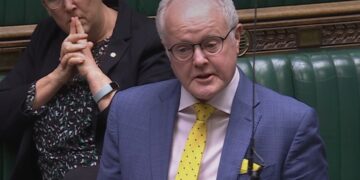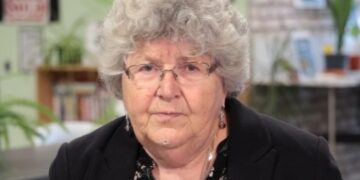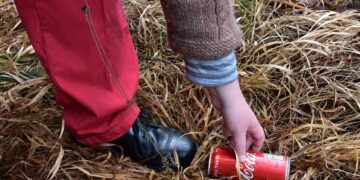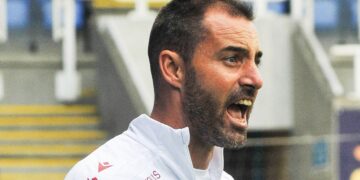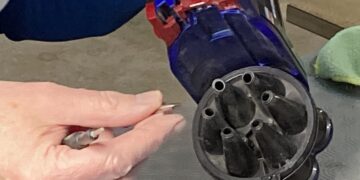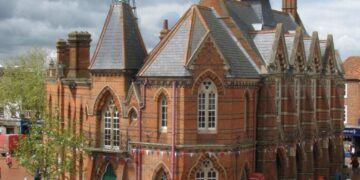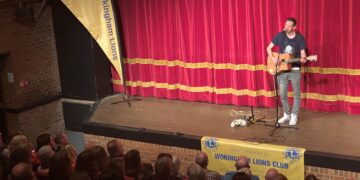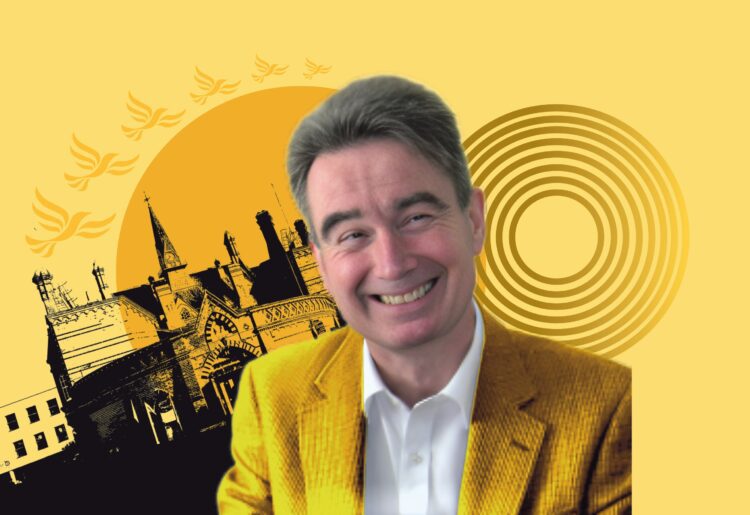LIBERAL Democrat leader Stephen Conway is coming up to the end of his first year in charge of Wokingham Borough Council – and the second that the party has led a minority administration.
It has not been without its difficulties as rising inflation, increased costs and demands from residents for support with adult social care and children’s services have all meant the council has had to be careful with its finances.
Earlier this month, it raised council tax bills by the maximum allowed, 4.99%. Is Stephen happy with this? Not at all.
“It is deeply regrettable. We have been obliged not because we want to, but because the government gives us a certain amount of money on the assumption we will go up to that cap level, and if we don’t, they think they don’t need to give us that money,” he says.
“We are so poorly funded by central government we have to rely heavily on what we can raise locally through council tax, fees and charges.”
Among the ways his administration has sought to negate that impact, Stephen cites the purchase of a care home to reduce future adult care costs, two new SEND schools which will reduce the school transport bill, and a solar farm in Barkham which he estimates will generate nearly £3 million a year in revenue.
“I would contrast, if I may, our responsible and forward-looking approach with that of the opposition, which has chalked up nearly £4.3 million worth of spending pledges for the coming year. How they intend to pay for them is, I’m afraid, a mystery,” he says.
“In the past they have talked in very vague terms about back-office savings, as if they hadn’t run the council for 20 of the last 22 years.
“We have already made significant reductions in staffing costs to help balance the books. Quite how they think they could make an additional £4.3 million in savings without endangering the viability of the council is something I just can’t fathom.”
Stephen says he does regret having to make savings in key areas: “It is a really big challenge.
“The important thing is to recognise that when you are faced with a big challenge of this magnitude, you have to make tough and difficult decisions. We’ve not been afraid to.
“You also have to keep focused on the primary objectives. For us, we have to establish a sound financial base for the council, so it can continue to deliver services.
“Two thirds of the budget goes on adults and children’s social care. We are obliged to provide this by statue, but we have a moral obligation too. I think everyone would agree that in a civilised society we want to support vulnerable people.”
The party’s manifesto talks about what it has done but doesn’t appear to set much in the way of new policies or plans. Is this a lack of vision, a lack or money, or both?
“I would say there is a lot of ambition there, and lots of vision,” Stephen counters. “I certainly have a vision for a council that works alongside others, in partnership, to try and tackle the problems the borough faces.
“I have a vision of trying to modernise the council so it functions as a truly 21st-century council that recognises it can’t do everything on its own, as resources do not allow that. We have to work creatively with others, embrace the opportunities of working with others, and try and ensure residents and businesses are properly served.
“I regard that as a big vision, a new kind of council working alongside others to try and maximise our ability to be able to help the community we’re here to serve.”
As part of its support for residents affected by the cost-of-living crisis, the council set aside £250,000 for unspecified spending. This attracted some criticism – does Stephen think it was fair?
“I don’t think it is,” he says, adding that by earmarking the money the mechanisms for spending it can change according to the priorities. An example he gave was ambiguity from the government over the Household Support Fund, which was going to be withdrawn but was then extended for a further six months.
“We have been budgeting in a way that’s putting money aside so we can help people who might, in the future, lose that funding. We wanted to be flexible about how we did that, and we will continue to try and address this in a flexible way, with our partners, to ensure money is spent to good effect and helps those who most need it. That seems, to me, to be a reasonable approach.”
One key election battleground from the Conservatives has been its opposition to the Lib Dems plans to introduce wheelie bins from this summer and switching waste and recycling collections to a fortnightly rota, food waste will continue to be collected weekly.
The government has indicated the direction of travel it intends for the future of doorstep collections but has not yet set its plans as chapter and verse. Is the council jumping the gun by pressing ahead regardless?
“The government has been fairly clear: it wants to see more containerisation of waste, which means bins,” Stephen says. “It wants a more consistent approach between councils – 85% of councils have alternate weekly collections. We think we are going to be obliged to adopt that approach sooner or later, whether we like it or not. We may as well get on and do it while we have some control over it.”
“The status quo, whatever the opposition might claim, is just not an option. They know that.”
He also said the change will save around £1 million a year. “In the current financial situation, we cannot afford to forego that kind of saving,” he says, adding that councils that have switched have also boosted their recycling rates. This also saves money.
Will the bins be big enough, and what about homes that cannot have space for them?
“We will make arrangements to ensure anyone who has special needs for extra capacity will have it,” Stephen promises. “We’re not going to impose on people a system that is going to lead to them not being able to recycle or deal with residual waste effectively.
“I remember when the blue bags were introduced there was an enormous opposition, people thought they were dreadful. Now some people have seemingly fallen in love with them and think they’re marvellous. But the only ones who have really loved the blue bags are magpies and foxes because they can just rip them open.
“The health risks of fortnightly collection from a sealed container? They’re nil. But a blue bag? They’re considerable.”
Last summer, litter bins across the borough were taped over to prevent people from using them. It was a mistake, and an attempt to reduce the numbers across the borough, but no consultation had been taken place. Stephen apologised again for the “blunder that was made”.
“I think if we look beyond that blunder, a cross party task and finish group has been established in the council to explore whether there are any ways to rationalise the number and location of litter bins,” he adds. “Town and parish councils will be involved in that work.
“I don’t envisage any major changes emerging from that process as most of the bins are very clearly needed.”
Another big issue, one that features prominently in the opposition’s leaflets, is the cost of parking. Last year, the Lib Dems made the first rises in five years and are intending to increase fees again this summer. The opposition is pledging to reverse them if they are re-elected on May 2. Who has it right?
“That would add quite a bit of money to the £4.3 million of unfunded spending pledges they’ve made already,” Stephen says.
“Let’s put this in some kind of context. The country parks have gone up by 30p an hour this year, as a result of needing to cover the costs of running the countryside services and improve facilities. We don’t charge an entry fee … I’m afraid we have to cover the costs otherwise we’re subsidising from other services.
“Off-street parking charges have increased by 10p an hour for the first two hours – that’s all, 10p and for the first two hours. There is no evidence that earlier increases have had a detrimental effect on usage; we have pretty clear evidence that in most cases car parking usage has increased despite the increased charges.”
Potholes, Stephen says, are a national issue and not limited to Wokingham’s roads.
“National government really is the answer, it must be prepared to invest more in our road network. The state of our roads, not just in Wokingham but across the country, is a result of chronic underfunding over many years,” he continues.
“What we’re doing is looking at new road surfacing techniques to meet the challenge posed by climate change, a very real challenge to road surfaces.
“I find it galling in the extreme that the opposition choose to campaign on potholes and road surfaces when they cut the road maintenance budget when they were in control of the council.
“It doesn’t seem to stop them criticising us and implying we’ve cut it when we haven’t cut it at all. We’re spending more money this year than last year, not less. The idea we’ve cut budgets and we’re anti-car is absolute nonsense.”
He also said the council was looking at boosting bus networks.
Summing up, he says: “The Liberal Democrats want a greener, a more prosperous Wokingham in which we can all feel able to play our part.
“We want to create opportunity for all. We believe in removing barriers to individuals realising their potential, regardless of who they are.
“This benefits individuals by enabling them to live happy and fulfilled lives, and it benefits all of us, because we will be able to better harness the talents that are out there in our community.”
He adds: “This is an all-out election. Everyone will have three votes to elect three councillors. I hope you will use your votes to support the Liberal Democrat candidates in your ward.
“If you want information on those candidates, please go to wokinghamlibdems.org.uk”


